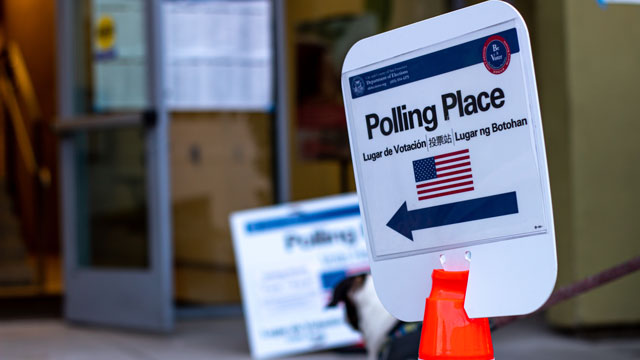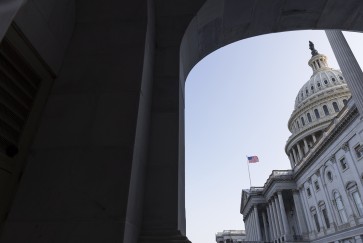With the Georgia Senate runoff elections set for Jan. 5, 2021, a nationwide survey conducted post-election could provide insights about voter perceptions of fairness in the U.S. election and trust in democratic institutions.
Researchers from a university consortium of Northwestern, Harvard, Northeastern and Rutgers surveyed more than 24,000 individuals across the nation between Nov. 3 and 30. The survey found that overall, 38% of Americans lack confidence in the fairness of the 2020 presidential election. That number is especially high among Republicans (64%) and Trump voters (69%) compared to Democrats (11%) and Biden voters (8%).
“This level of distrust is not surprising, given political rhetoric, but it certainly is concerning. Elections are the foundation of our democracy and loss of faith in the process could undermine the new administration’s legitimacy and ability to get things done,” said James Druckman, the Payson S. Wild Professor of political science in the Weinberg College of Arts and Sciences at Northwestern and associate director of the University’s Institute for Policy Research.
The survey showed large partisan gaps of over 40 percentage points in public concern about mail-in fraud (85% of Republicans and 38% of Democrats), inaccurate or biased vote counts (84% of Republicans and 44% of Democrats) and illegal votes from non-citizens (81% of Republicans and 34% of Democrats).
To better understand the reasons why some Americans distrust the election process, respondents were asked about their level of concern regarding voter suppression, intimidation, inaccurate or biased counts and interference.
The problem most people found troubling was voter suppression (making it harder for certain groups to vote), with over two-thirds of respondents (67%) saying they were somewhat or very concerned about it. Voter intimidation was a concern for 62% of respondents, while inaccurate or biased vote counts concerned 60% of Americans. Foreign country interference was a concern for 59%, mail-in ballot fraud for 57% and illegal votes from non-citizens was a concern for 52%.
“These numbers create a puzzle for the current Senate elections in Georgia,” said Druckman. “For some, the concerns may de-mobilize but for others it may be a mobilizing factor to get your vote in, especially to combat concerns about suppression and intimidation.”
The three most polarizing election process issues with partisan gaps of over 40 percentage points had been heavily promoted by President Trump and received attention by right wing media. These included mail-in fraud (reported as somewhat or very concerning for 85% of Republicans but only 38% of Democrats), inaccurate or biased vote counting (a concern for 84% of Republicans and 44% of Democrats) and illegal votes from non-citizens (a concern for 81% of Republicans and 34% of Democrats).
Partisan differences were lowest with regard to foreign interference in the election (60% Republicans and 63% Democrats), voter intimidation (60% Republicans and 67% Democrats) and voter suppression (63% or Republicans and 73% of Democrats).
“The results make clear that we have a long way to go to restore faith in our electoral process,” Druckman said.
Additional survey findings:
- Asked about acceptable reactions to an unfair election, 45% of Americans approved of protesting on social media, 38% of protesting in person, 18% approved of violating laws without violence, and 8% of using violence. Non-violent law breaking was approved by 23% Democrats and 17% Republicans, violence by 10% Democrats and 8% Republicans.
- 69% of Americans trust the Supreme Court to handle the election, 43% trust the news media, 31% trust social media companies. Trump is trusted by 39%, Biden by 59%.
- Considerable partisan gaps emerged for all institutions except Congress, which was trusted by 57% of Republicans and 53% of Democrats.
- When asked who won the election, 67% of Americans say President-elect Biden won the election and 17% suggest that Donald Trump is the winner. Thirty-nine percent of Republicans and 3% of Democrats reported thinking Trump is probably winning or definitely winning.
Read the current report here as well as previous reports by the COVID-19 Consortium.


